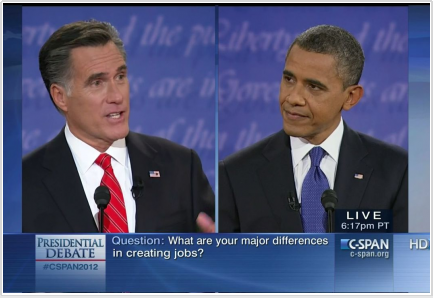In this commentary, Chris Edelson from American University says the definition of executive powers within the Constitution must be addressed during the 2016 campaign process.
 With the 2016 presidential campaign already getting underway, it’s time to start thinking about how to use the next year and a half wisely as a way to gain meaningful information about candidates for the presidency. One important issue is national security power.
With the 2016 presidential campaign already getting underway, it’s time to start thinking about how to use the next year and a half wisely as a way to gain meaningful information about candidates for the presidency. One important issue is national security power.
Presidents George W. Bush and Barack Obama have claimed broad, sometimes unrestrained power in this area. It is worth considering some lessons from their presidencies, and also from Obama’s candidacy, as we size up the candidates for 2016.In 2007, then-candidate for President Barack Obama answered a series of questions about presidential power
Charlie Savage posted the answers on line, where they are still available. Savage asked candidate Obama a number of questions aimed at establishing Obama’s position regarding the scope and limits of presidential power. The context for these questions was the Bush administration’s endorsement of essentially unbounded presidential power, rooted in the dangerous notion that vaguely defined inherent power allowed the President to set aside even criminal laws in the name of national security.
For those of us concerned about checks and balances, candidate Obama gave all the right answers. He rejected the Bush administration’s view of war power, correctly observing that “The President does not have power under the Constitution to unilaterally authorize a military attack in a situation that does not involve stopping an actual or imminent threat to the nation.”
Obama also rejected the Bush administration’s use of signing statements, statements Presidents include when signing legislation that Bush had used to evade statutory limits on power. Obama promised that “I will not use signing statements to nullify or undermine congressional instructions as enacted into law.” Obama further declared that “I reject the use of signing statements to make extreme and implausible claims of presidential authority.”
As President, however, Obama has taken a different approach. President Obama has claimed the authority to order the use of military force outside the emergency context he described in 2007. He ordered military operations against Libya in 2011 and against ISIS since 2014 without congressional approval. President Obama also relied on a signing statement to skirt statutory requirements when he authorized the prisoner exchange that freed Sgt. Bowe Bergdahl from captivity in exchange for the transfer of five prisoners from Guantanamo.
The contrast between Obama’s statements as candidate and as President must give us pause, of course. There is no reason to believe that asking the current presidential candidates about their positions on national security power, checks and balances, and the limits of presidential power will lock them in place. In other words, they may well say one thing as a candidate and take a different approach if elected President.
However, it is still important to ask these questions of candidates now — for the reasons Obama himself cited in 2007: “These are essential questions that all the candidates should answer. Any President takes an oath to ‘preserve, protect and defend the Constitution of the United States.’ The American people need to know where we stand on these issues before they entrust us with this responsibility — particularly at a time when our laws, our traditions, and our Constitution have been repeatedly challenged by (the Bush) Administration.”
President Obama’s words still apply today, even if his own administration will itself leave questions about the limits of presidential power for the next administration. It’s also important to remember that Presidents are only part of the constitutional framework: We also need to know what candidates for Congress think about presidential power and Congress’s role in making decisions about the use of war power.
From Obama’s example, we are reminded that it is important to be skeptical of promises candidates make. Holding Presidents and other elected officials accountable to the promises they make, however, is ultimately up to the public. Journalists can help by asking candidates questions that will reveal their views about the scope and limits of presidential power. If voters aren’t happy about the answers, or aren’t happy about the actions Presidents take once in office, it will be up to them to act on their concerns
Chris Edelson is an assistant professor of government in American University’s School of Public Affairs. He is the author of “Emergency Presidential Power: From the Drafting of the Constitution to the War on Terror”, published in 2013. This commentary first appeared in the New Hampshire Union Leader.






